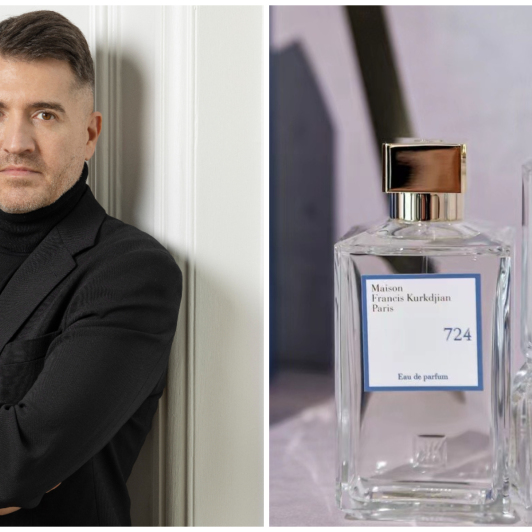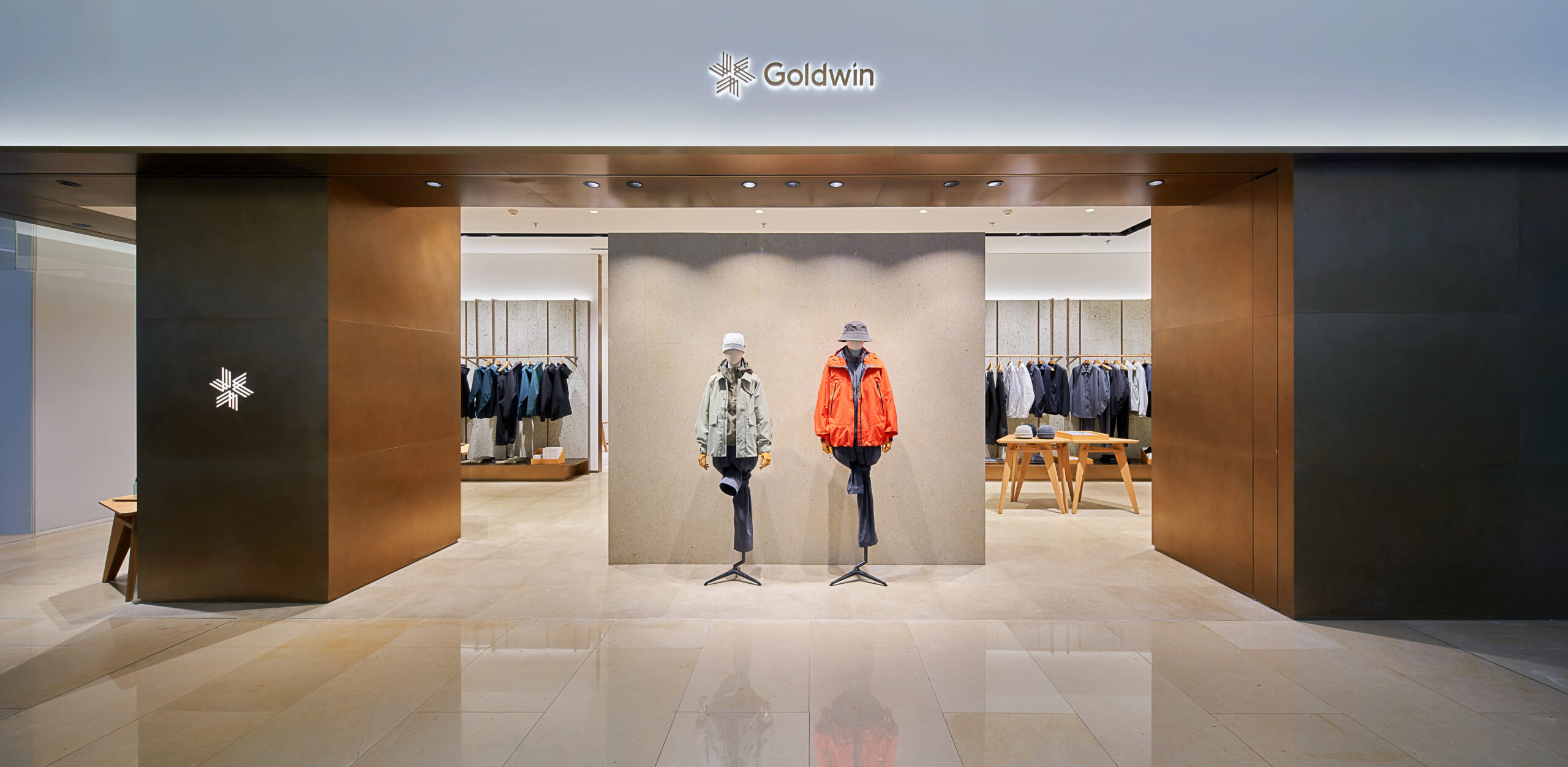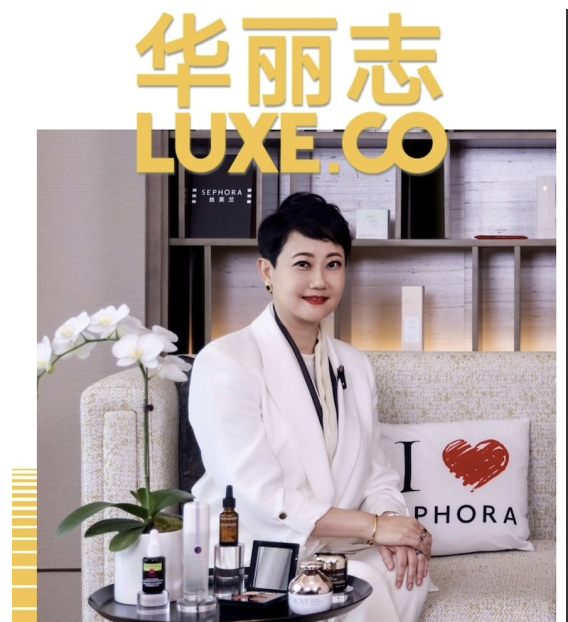
Five years ago, Maggie Chan experienced a significant turning point in her career: she shifted from the fast-moving consumer goods sector, where she had been deeply involved for twenty years, to immerse herself in the high-end beauty industry. She assumed the role of General Manager for Sephora in the Greater China region.
“Diversity, breakthroughs, innovation.” In a recent interview with Luxeplace.com, Chan described her vision of Sephora with these words. Over the course of five years, she consistently centered around these three core concepts, orchestrating multiple dimensions of upgrades and transformations for Sephora China.
Back in 2019, shortly after taking on her new role, we interviewed Chan, delving deep into the trends of the domestic beauty market. At that time, she spoke about Sephora’s responsibility as a “trailblazer” in the beauty industry.
Over the past five years, the rise and subsequent decline of local beauty retail newcomers, alongside industry-wide consolidation, posed the challenge of keeping Sephora at the forefront of high-end beauty retail and achieving new breakthroughs. This has been the ongoing exploration that Chan has undertaken over these five years.
Through this conversation taking place five years later, she candidly shared her personal journey of growth alongside Sephora China.

Sephora’s Future Concept Store Opening Day in Shanghai, Maggie Chan (second from the right) participating in the inauguration event
The First Step in Returning to the Essence of Retail: Building an Omni-Channel Strategy
After graduating from the Hong Kong Chinese University with a major in sociology, Chan entered the fast-moving consumer goods industry. She gained experience in both domestic and international markets, working at companies like Johnson & Johnson, Procter & Gamble, and Unilever. Through these experiences, she honed her ability to keenly perceive market and consumer changes.
Transitioning from fast-moving consumer goods to the high-end beauty sector while entering a new field, the constant factor is the goal of shaping and enhancing the consumer experience. Especially within the high-end beauty industry that Sephora operates in, a key factor in securing the future lies in the ability to provide consumers with better and more unique experiences.
After assuming the role of General Manager for Sephora Greater China, Chan introduced a new concept, “True Retail.” In her view, for beauty retailers to achieve long-term development, they must follow the consumers, being present wherever the consumers are. The essence of “True Retail” lies in the ability to reach consumers through products, services, and content across any space and time.
However, this is a gradual process that starts with laying a solid foundation. The first step in achieving “True Retail” is building an omni-channel strategy.
Offline, while Sephora continuously optimizes and upgrades stores in tier one and tier two cities, they are also actively expanding into tier three and four cities. Even after the pandemic, while other domestic beauty retailers slowed down their expansion, Sephora continued to grow. From January to August this year, Sephora has entered even more remote markets like Bozhou in Anhui and Tai’an in Shandong.
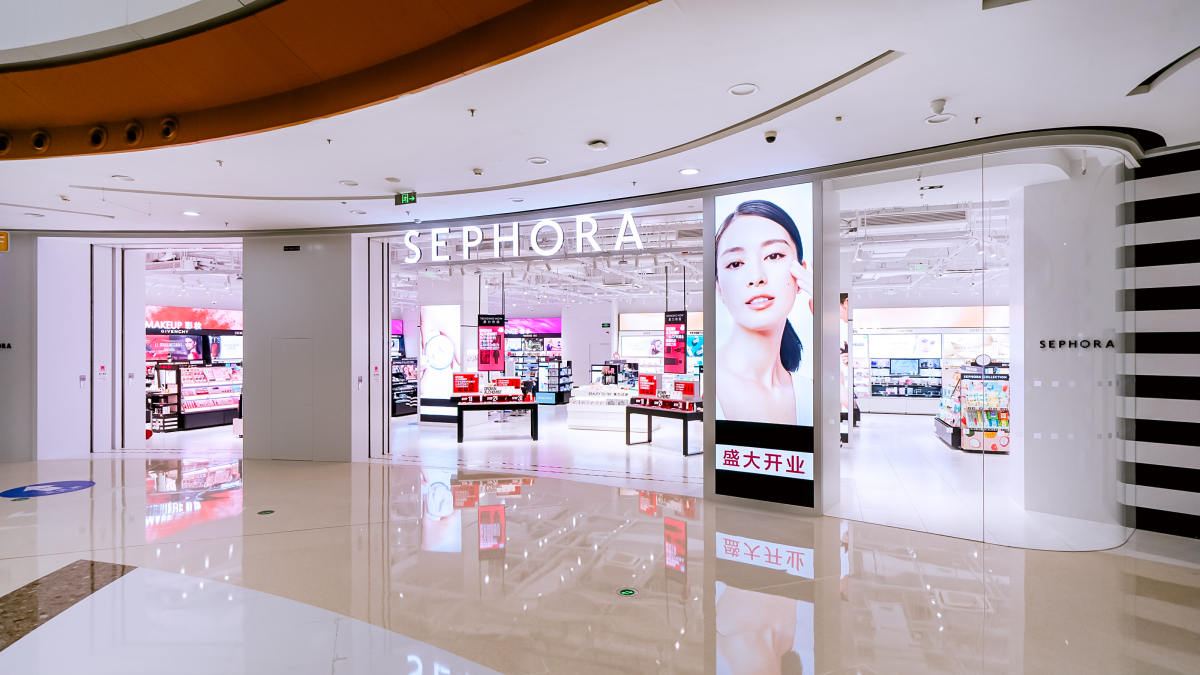
Sephora Wanda Plaza store in Tai’an, Shandong, opened on August 1, 2023
In terms of store location, Sephora prefers high-end commercial complexes. Moreover, factors such as foot traffic in the area, convenience of transportation, and brand exposure also play crucial roles in the selection process.
Currently, Sephora has a total of 328 offline stores in the Greater China region, spread across 93 cities. According to Chan, there are plans to open more than 20 new stores in the second half of this year.
In the online realm, Sephora has built an online e-commerce matrix over the years, consisting of eight major platforms. This includes the official Sephora website, official app, WeChat mini-program, Douyin store, Tmall flagship store, JD.com flagship store, Meituan takeaway, and JD Daojia.
In Chan’s view, this online e-commerce matrix is a response to changing consumer demands. On one hand, the channels for obtaining consumer information and understanding their behavior have become increasingly diverse and scattered. By deploying essential shopping platforms like Douyin, WeChat, and Tmall, Sephora can satisfy consumer needs anytime and anywhere.
During the recent Qixi Festival (Chinese Valentine’s Day), Sephora partnered with Meituan to offer exclusive beauty gifting services, with the core message being “Buy Sephora on Qixi, order through Meituan.”
Chan specifically noted that the collaboration with Meituan is a result of changing consumer demands post-pandemic. The aim is to leverage Sephora’s national store presence and utilize Meituan to provide convenient services to travelers, creating opportunities for beauty enhancement anytime and anywhere.

Sephora’s Collaboration with Meituan for Qixi Festival
Furthermore, by continuously improving and updating the functionality of their official platforms, such as the recent launch of the “Beauty-on-the-Go – Hourly Delivery Service” on the official app and WeChat mini-program store, Sephora can transform nearby stores into small warehouses for e-commerce, effectively and swiftly meeting user demands, thereby strengthening the connection with consumers.
“In the future, while maintaining close cooperation with domestic e-commerce giants, Sephora will focus on building its own app and website channels to enhance customer traffic operation,” Chan stated.
She particularly emphasized that the collaboration with Meituan is based on changing consumer demands post-pandemic, aiming to leverage Sephora’s nationwide store presence through Meituan to offer convenience to travelers.
While enhancing the channel experience, Sephora also maximizes the use of its existing resources, including over 300 stores and more than 4,000 beauty consultants, to continuously provide consumers with beauty knowledge through offline service experiences.
Simultaneously, through the Sephora Beauty Show, an original beauty reality show event, beauty consultants from Sephora’s nationwide stores can share their favorite makeup, skincare, and beauty techniques, receiving professional feedback and guidance. In 2022, this internal event transitioned to a new co-creation model, enhancing its influence and exposure in the industry, providing a wider range of consumers with professional makeup skills and product recommendations.
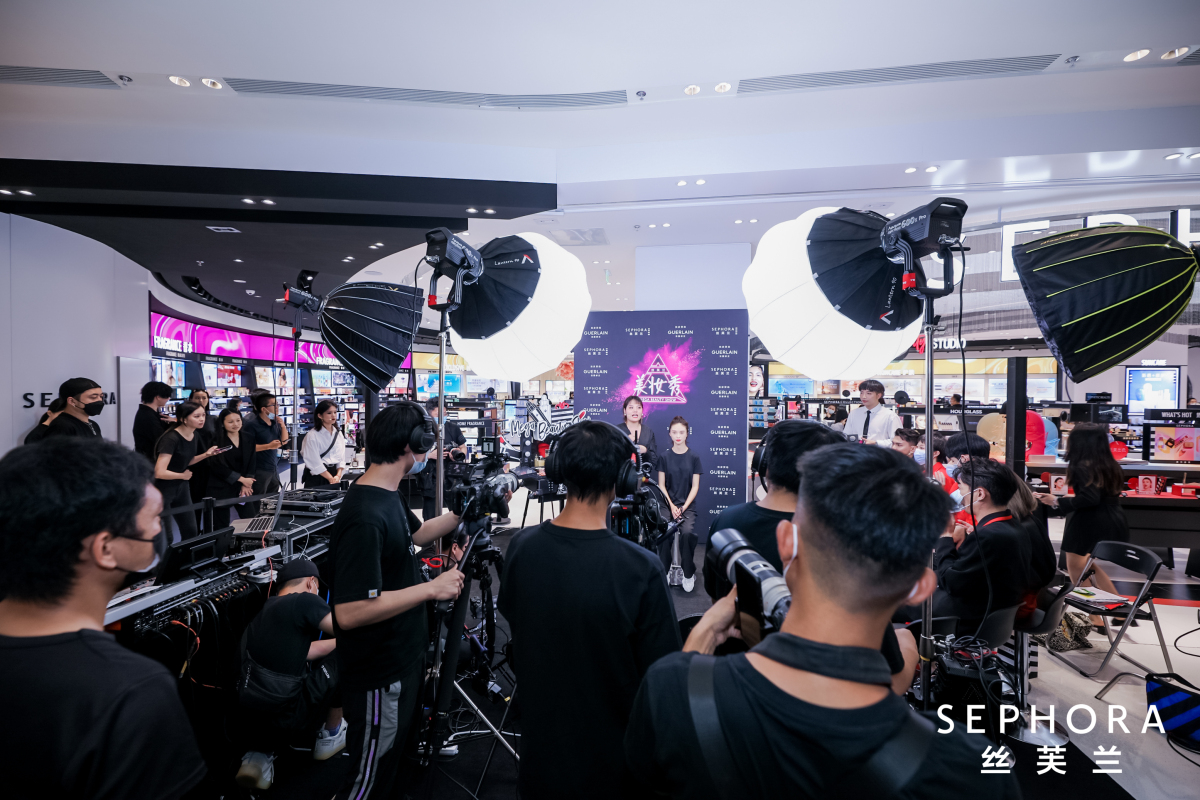
Sephora Makeup Competition
Within their base of regular customers, users can genuinely recommend products and beauty tips to each other, fostering stronger user engagement.
Proposing “Digital Intelligence Innovation” to Elevate Retail Experience
As the network of channels grows larger, a new challenge arises: how can the increasingly sophisticated and individualistic young consumers truly experience Sephora’s unique value and maintain its competitiveness in a rapidly changing market environment?
In 2022, a new transformation began within Sephora, led by Chan: the “digital intelligence transformation.” To accelerate this transformation, Sephora established a “Digital Intelligence Innovation” team.
“If the omni-channel reform is Sephora’s strategy for horizontal expansion, then through digital intelligence innovation, we break down barriers between channels, deepen the connections and experiences at every touchpoint, seamlessly integrate online and offline, to achieve an aggregation effect where 1 plus 1 is greater than 2,” she explained.
Under her leadership, Sephora established the Digital Intelligence Innovation department in early 2022, consisting of three core teams: the “Data Excellence Center Team,” which conducts customer insight analysis and a refined labeling system based on Sephora’s extensive database; the “Omni-Channel Digital Intelligence Product Team,” which provides digital intelligence experiences and develops digital intelligence assets; and the “Omni-Channel Business Team,” which continuously explores new business models and offers integrated personalized experiences across channels. Through collaborative efforts with e-commerce, stores, marketing, and other departments, they enhance consumers’ omni-channel experience.
The achievements of this department quickly translated into significant projects at Sephora. In June of this year, Sephora’s store on Nanjing East Road in Shanghai was officially upgraded to become the Sephora Future Concept Store. Here, the manifestation of digital intelligence innovation became more concrete.
In addition to offering a vast array of products from numerous global high-end beauty brands, the store also focuses on enhancing consumers’ beauty shopping experience through 7 innovative digital touchpoints. Using the “Skin Care Butler” and “AI Makeup Play” systems supported by data algorithms, beauty consultants can provide consumers with more professional and accurate “customized” product recommendations by combining system analysis reports and intelligent summarization solutions with their own expertise.

Sephora Asia Future Concept Store “Skin Care Butler” Device

Sephora Asia Future Concept Store “AI Makeup Play” Device
Chan revealed that in October of this year, the second “Future Concept Store” in China will open in Wuhan. “By then, we will share more curated beauty products, digital intelligence innovation achievements, and exclusive professional services with consumers in the Central China market.”
Sephora has also launched the Smart BA (Beauty Advisor) project online, allowing beauty consultants to provide consumers with continuous one-on-one remote personalized services and online extended business in private domain communities through the enterprise WeChat digital ecosystem.
Simultaneously advancing digital intelligence innovation initiatives online and offline enables Sephora to collect more user consumption habit data and provides reliable support for further deepening digital transformation. Since 2020, Sephora has released the high-end beauty industry white paper for three consecutive years, and the beauty consumption trends disclosed in it each year are based on profound insights from Sephora’s extensive database.
Overseas Niche Brands + Premium Chinese Brands
Creating Exclusive Brand Momentum
The exclusive report “Observations on the Chinese Market for Global Luxury Skincare Brands” from Luxe.CO‘s research arm, Luxe.CO Intelligence found that after the pandemic, the meaning of skincare has extended beyond the surface of the skin, becoming an integral part of people’s physical and mental wellness.
As Maggie Chan shared with us, “emotional value” is becoming a popular term among young people today. Brands that focus on delivering emotional value and experiences that provide a sense of relaxation and comfort, while maintaining product quality, will have broader growth opportunities.
Simultaneously, over the years of exposure to beauty and product ingredient knowledge, consumers have developed more diversified demands for skincare products in terms of ingredients, efficacy, gentleness, and more. The concept of skincare has expanded from facial care to scalp care, body care, and beyond. Therefore, according to Chen Bing, the future of skincare will become increasingly specialized.
Recognizing these core trends, Sephora China has been expanding its brand matrix in recent years, particularly its exclusive brand matrix.

Sephora’s Exclusive Brand Matrix (not a complete list)
In building the exclusive brand matrix, Sephora continues to introduce overseas niche brands to offer consumers more specialized and personalized products. Simultaneously, through the “Shine Bright China” project, they actively discover and incubate premium Chinese brands, providing these brands with a better development platform.
Today, this diverse exclusive brand matrix has become the driving force behind Sephora’s development.
Over the past five years, Sephora has introduced over 30 new brands to the Chinese market. Currently, Sephora China offers over 200 brands in its portfolio, with around 40 of them being exclusive brands, covering a wide range of categories, including makeup, skincare, perfumes, and hair care.
“As the only true high-end beauty retailer in China, Sephora’s foundation lies in the diversity of products and brands,” emphasized Chan to Luxeplace.com.
It’s worth noting that for the exclusive brands they host, Sephora is more than a simple channel partner; they function more like a brand incubator, providing multidimensional and supportive assistance.
Mid-year, under the theme “A World of Beauty,” Sephora promoted the seasonal new products of premium Chinese brands and overseas emerging brands as core offerings.

Sephora’s “A World of Beauty” Campaign Poster
Moreover, Sephora collaborates with brands to create deep in-store experiences, providing consumers with the opportunity to engage closely with exclusive brands through nearly 4,000 beauty consultants nationwide. For instance, the exclusive brand Cha Ling offers dedicated spa services in Sephora’s Shanghai Xidan Joy City store and Haikou MixC store.
For overseas niche brands and premium Chinese brands that are just starting out in China, increasing market visibility is often their initial challenge. By leveraging Sephora’s rich market activities, these brands can efficiently convey their philosophy and product highlights in their early stages, empowering them for wider market acceptance.
Additionally, Sephora assists brands in opening and operating flagship stores on Tmall, tapping into the potential of private domain communities. These years of accumulated localized experience serve as strong safeguards for brands to quickly adapt to the Chinese market and accurately reach local consumers.
Strengthening Youth Talent Development and Corporate Responsibility
Building Internal Strength
Talent has always been the core element of business development, especially for Sephora in its phase of growth and expansion.
As a working mother, Chan emphasizes the importance of communicating equally with young people, a realization she gained from her daily interactions and communication with her daughter.
Under Chen Bing’s leadership, Sephora China established the Gen Z Club platform, where young employees can express themselves freely and make friends across departments. Additionally, Sephora encourages stores and beauty consultants to create content on platforms like TikTok and Xiaohongshu to showcase their individual personalities.
We’ve also noticed that the official public account “Sephora Recruitment” has become increasingly enriched in content over the years. From solely posting job advertisements in the past, it now focuses on employees, allowing them to share their everyday work experiences within the company.

Sephora Employees Sharing Work Insights on WeChat’s Fixed Column
“Currently, 40% of Sephora China’s employees are born after 1995. When it comes to daily marketing projects, social media operations, and even developing market strategies for exclusive brands, we’re happy to invite Gen Z employees to participate in brainstorming sessions, focus group interviews, and more, to provide their insights and fresh ideas from a youthful perspective,” Chan explained.
This “people-oriented” talent philosophy and diverse and inclusive corporate culture are essential components of Sephora’s strategy for sustainable development based on the local market. In May of this year, Sephora China released its first “2021-2022 Sephora China Sustainable Development Report,” providing detailed insights into key topics and areas of focus.
In stores, over 300 Sephora China stores have switched to 100% energy-efficient LED lighting. In the supply chain, through optimizing cardboard materials and packaging methods, Sephora China has reduced the weight of its e-commerce delivery cartons by 10%. For products, Sephora’s in-house brand, Sephora Collection, uses over 90% natural plant extracts in its Pleasure Skincare Series.
In the past, the beauty industry often faced criticism for the waste caused by frequent product iterations. Through its first sustainable report, Sephora China not only clarified its own sustainable development goals but also sent an important signal to the industry: sustainable development in the beauty industry is an inevitable choice.
Closing Remarks
“Breakthrough” is both a keyword for Maggie Chan’s personal career and a core theme for Sephora under her leadership in China. These five years have been a dual challenge of mentality and endurance for both Chan and Sephora.
When Chan joined Sephora five years ago, she regarded herself as a “pioneer in the beauty industry.” Over these five years, she has stayed true to her initial commitment, leading Sephora in China to achieve comprehensive “diversity, breakthrough, and innovation” across channel strategies, user experience upgrades, and humane care.
Today, the Chinese domestic beauty retail market has entered a new stage, with high-end beauty brands accelerating their all-channel operations. For Sephora, opportunities and challenges coexist. How to continue deeply engaging consumers, providing them with brands that meet their needs, and continuously improving and enhancing the consumer experience are long-term propositions for Sephora China’s development. These factors are also crucial for its ongoing leadership in high-end beauty retail.
| Image Credit: Provided by Sephora
| Editor: Zhu Ruoyu

